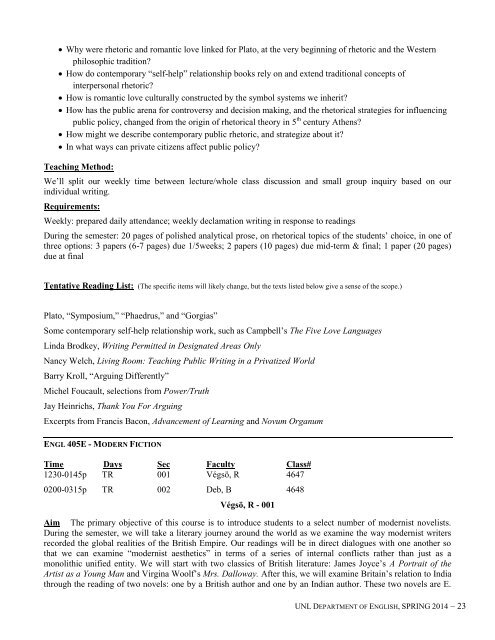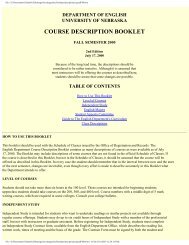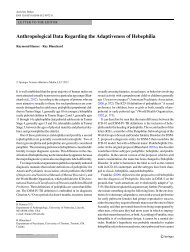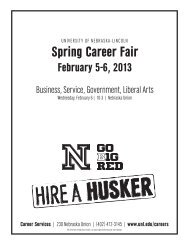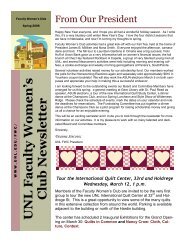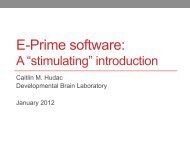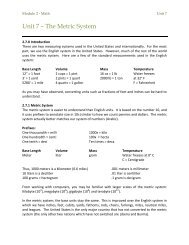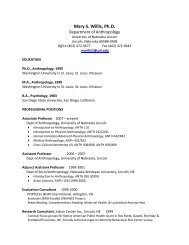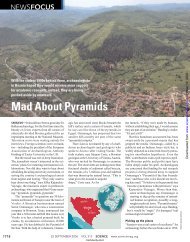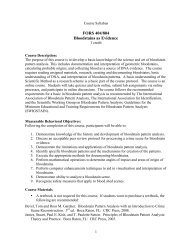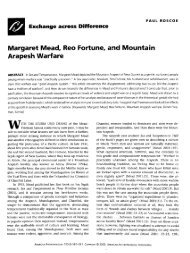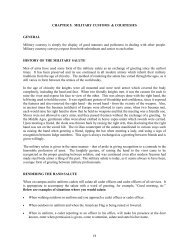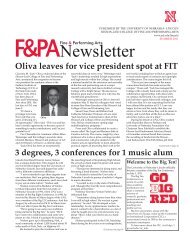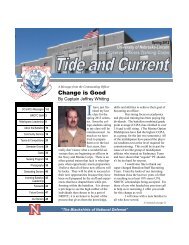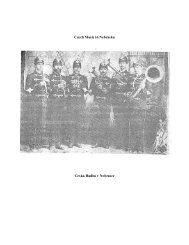COURSE DESCRIPTION BOOKLET Undergraduate Level Courses
COURSE DESCRIPTION BOOKLET Undergraduate Level Courses
COURSE DESCRIPTION BOOKLET Undergraduate Level Courses
Create successful ePaper yourself
Turn your PDF publications into a flip-book with our unique Google optimized e-Paper software.
Why were rhetoric and romantic love linked for Plato, at the very beginning of rhetoric and the Western<br />
philosophic tradition?<br />
How do contemporary “self-help” relationship books rely on and extend traditional concepts of<br />
interpersonal rhetoric?<br />
How is romantic love culturally constructed by the symbol systems we inherit?<br />
How has the public arena for controversy and decision making, and the rhetorical strategies for influencing<br />
public policy, changed from the origin of rhetorical theory in 5 th century Athens?<br />
How might we describe contemporary public rhetoric, and strategize about it?<br />
In what ways can private citizens affect public policy?<br />
Teaching Method:<br />
We’ll split our weekly time between lecture/whole class discussion and small group inquiry based on our<br />
individual writing.<br />
Requirements:<br />
Weekly: prepared daily attendance; weekly declamation writing in response to readings<br />
During the semester: 20 pages of polished analytical prose, on rhetorical topics of the students’ choice, in one of<br />
three options: 3 papers (6-7 pages) due 1/5weeks; 2 papers (10 pages) due mid-term & final; 1 paper (20 pages)<br />
due at final<br />
Tentative Reading List: (The specific items will likely change, but the texts listed below give a sense of the scope.)<br />
Plato, “Symposium,” “Phaedrus,” and “Gorgias”<br />
Some contemporary self-help relationship work, such as Campbell’s The Five Love Languages<br />
Linda Brodkey, Writing Permitted in Designated Areas Only<br />
Nancy Welch, Living Room: Teaching Public Writing in a Privatized World<br />
Barry Kroll, “Arguing Differently”<br />
Michel Foucault, selections from Power/Truth<br />
Jay Heinrichs, Thank You For Arguing<br />
Excerpts from Francis Bacon, Advancement of Learning and Novum Organum<br />
ENGL 405E - MODERN FICTION<br />
Time Days Sec Faculty Class#<br />
1230-0145p TR 001 Végsö, R 4647<br />
0200-0315p TR 002 Deb, B 4648<br />
Végsö, R - 001<br />
Aim The primary objective of this course is to introduce students to a select number of modernist novelists.<br />
During the semester, we will take a literary journey around the world as we examine the way modernist writers<br />
recorded the global realities of the British Empire. Our readings will be in direct dialogues with one another so<br />
that we can examine “modernist aesthetics” in terms of a series of internal conflicts rather than just as a<br />
monolithic unified entity. We will start with two classics of British literature: James Joyce’s A Portrait of the<br />
Artist as a Young Man and Virgina Woolf’s Mrs. Dalloway. After this, we will examine Britain’s relation to India<br />
through the reading of two novels: one by a British author and one by an Indian author. These two novels are E.<br />
UNL DEPARTMENT OF ENGLISH, SPRING 2014 – 23


